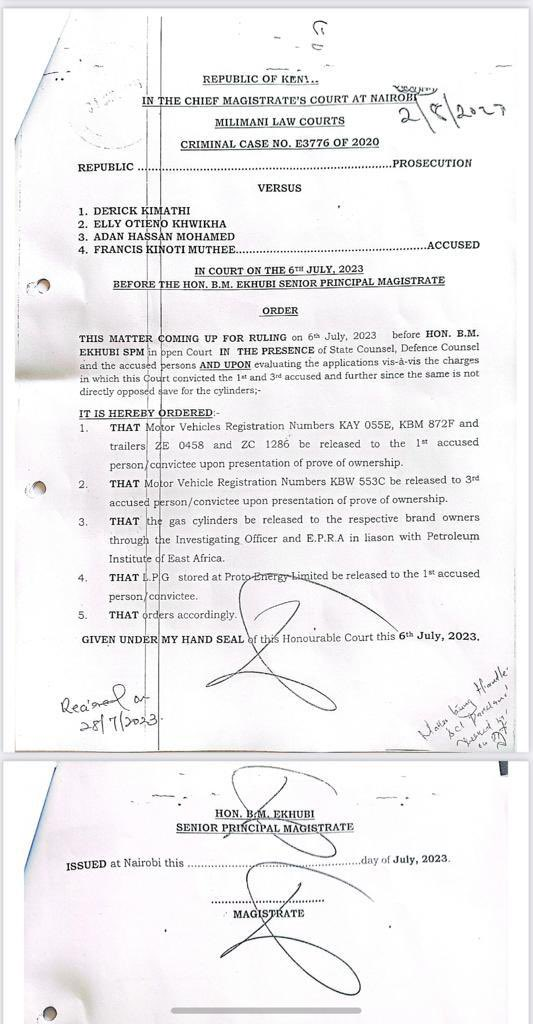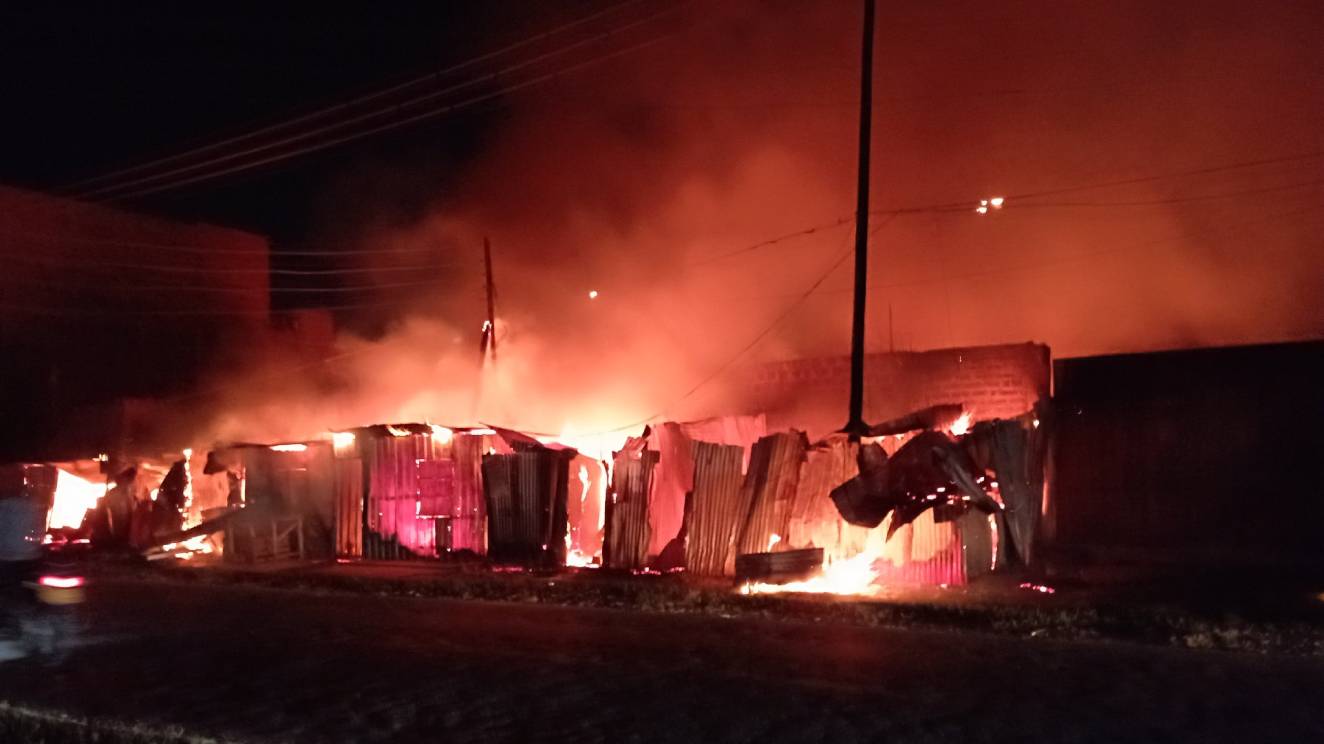The Petroleum Institute of East Africa (PIEA) revealed shocking details shrouded in court cases and mystery surrounding the LPG tanker explosion in Embakasi, Nairobi, which tragically claimed lives and injured over 280 people.
According to PIEA, the incident occurred at an illegal refilling and storage site previously operated by a convicted criminal
In a press release issued on Friday, PIEA sheds light on the facility's illegal operations, a prior criminal case against its proprietor, and a lenient sentence that may have contributed to the tragedy.
"This explosion occurred on what is an illegal LPG refilling and storage site that is situated in a densely populated residential area in contravention with the Petroleum Act 2019 LPG Regulations," stated Wanjiku Manyara, General Manager of PIEA, in an urgent press release.
PIEA's investigation revealed that the site had a disturbing history.
Read More
In November 2020, the proprietor and clients faced criminal charges for illegal activities at the facility, with convictions secured in May 2023.
However, despite a mandatory minimum sentence of five years or a Sh10 million fine, the court imposed significantly lighter penalties, raising concerns about enforcement.
"Despite guidance from the High Court on the mandatory minimum sentence of 5 years in prison or a penalty of Sh10,000,000 (Ten million), the leamed Magistrate of Court Number 11 imposed total fines of Sh500,000 or a one-year imprisonment instead of Sh20,000,000 or 5 years for the proprietor (first accused) and a fine of Sh50,000 for the second accused instead of a fine of Sh10,000,000 or 5 years," PIEA stated
"One of the LPG tankers involved in this incident, registration number ZC 1286, was unprocedurally released by the courts despite the convictions," the press release highlighted. "

Apparently, the proprietor persistently ran the illicit facility, neglecting even the most basic safety standards, ultimately resulting in this tragic disaster.
"Despite the above actions and convictions, the proprietor continued operating the illegal storage and refilling facility without even the bare minimum safety standards and qualified LPG personnel as required by law leading to this unfortunate catastrophe which could have been avoided should the letter and spirit of the law have been followed," PIEA said.
PIEA emphasized that this tragedy could have been averted with stricter adherence to the law and regulations and emphasised deep concern about the site's location in a densely populated area and its repeated violations.
The institute also cautioned the public against purchasing LPG cylinders from unauthorized retailers lacking proper documentation.
They pledged continued collaboration with regulatory bodies to prevent similar incidents and urged full enforcement of safety regulations.
The revelation of the site's illegality and the proprietor's criminal history adds a crucial layer to the Embakasi explosion narrative, raising vital questions about accountability and regulatory effectiveness.













